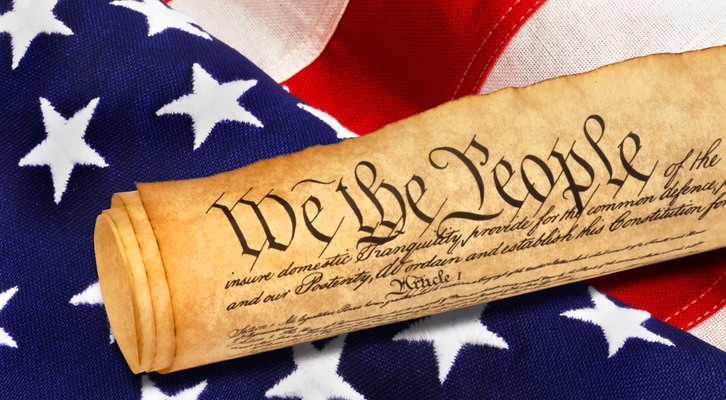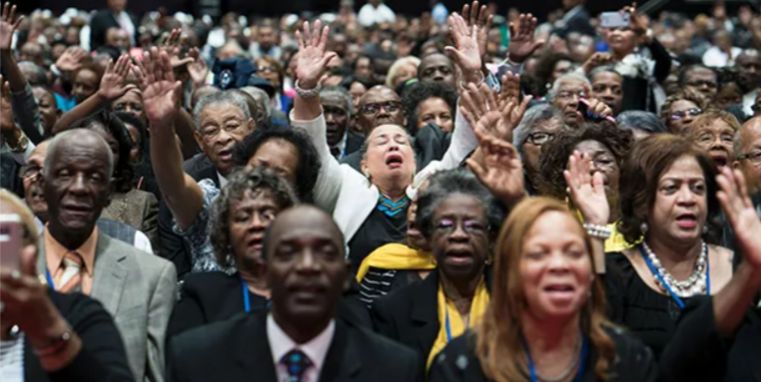(ThyBlackMan.com) Why are we still so fascinated with “The Lion King” after three decades? It’s largely because of the centrality of fatherhood, as anthropomorphized by Mufasa (who was voiced by the late James Earl Jones).
In a society that is grappling with rapid change and mounting challenges, the role of fathers remains a cornerstone of stability and growth. Yet, in too many homes – and in too many headlines — the critical importance of fatherhood is often overshadowed, minimized, or dismissed outright. It is time for us to confront the simple truth: strong fathers build strong families, and strong families build strong communities.
Fatherhood is not just about biology; it is about presence, guidance, and love. It’s about showing up, day in and day out, to model integrity, instill values, nurture confidence, and offer correction. Too often, when we discuss family dynamics, the conversation centers almost exclusively on mothers. If the topic of fatherhood enters the discussion, it is often done solely to criticize them for their shortcomings.

While maternal contributions to the rearing of children are undeniably invaluable, the relative cultural silence (or loudly spoken complaints) regarding fathers contributes to the notion that they are secondary. This is not only untrue; it is also harmful.
Consider the data: children who are actively engaged with fathers are less likely to drop out of school, commit crimes, engage in drug use, or fall into poverty. They are also more likely to thrive emotionally, academically, and socially. This isn’t just anecdotal evidence; it’s a consistent finding across decades of research. Yet, consistent fatherhood involvement remains a glaring crisis in many communities, including ours.
It is crucial at this point to address the role of race in this discussion. Contrary to widely held belief, Black fathers are more actively involved in the lives of their children than are their white and Hispanic counterparts. This is based on studies from the CDC, Pew Research Center, and the National Responsible Fatherhood Clearing House. Crucially, this includes Black fathers who are not married to their children’s mothers, or who are otherwise not living under the same roof. We must stop conflating high out-of-wedlock birthrates with a lack of involvement from Black fathers.
In short, the fatherhood crisis does exist, but it is not based on race. To the extent that race does play a role, it has to do more with systemic inequalities. That is, economic and social pressures often place disproportionate burdens on Black fathers, thereby creating barriers to greater participation in family life. From mass incarceration to wage discrimination, these forces often erode the foundational structure of family units.
Yet, it’s not just systemic forces; cultural narratives also bear some responsibility. Media portrayals of fathers (especially Black ones) as absent, incompetent, or disinterested reinforce stereotypes that often serve to discourage men from embracing the full spectrum of their parental responsibilities. Further, most economically dislocated fathers are not deadbeats; they’re simply dead broke.
We must challenge these negative narratives head-on. We need to highlight stories that uplift and celebrate fathers who defy the odds, who sacrifice and strive for their families every single day. Let’s ensure that when we discuss family dynamics, we acknowledge the invaluable role that fathers play.
Second, we must address systemic barriers. This means advocating for policies that support fathers, such equitable employment opportunities, criminal justice reform, and access to mental health services. It also means creating spaces where fathers can share their experiences and seek mentorship without judgment. This is important across all demographics, including race.
Finally, fathers must take it upon themselves to rise to the occasion. Fatherhood is not a static identity; it is a daily commitment. It is being the steady hand that guides children’s growth and the reassuring voice that lets them know that they are loved — no matter what. It is about being there physically, emotionally, and spiritually. As much as children want presents, they need their dad’s presence.
We are all familiar with the well-worn aphorism that it takes a village to raise a child, but let’s not forget who should be at the center of that village: parents. Within that unit, fathers play an irreplaceable role. When fathers lead with love and purpose, they provide a blueprint for resilience, compassion, and strength. Fathers help their children learn how to navigate the complexities of the world with confidence, grace, and good humor.
The importance of fatherhood cannot be overstated. It’s time that we treat it as the essential institution it is — a pillar of our homes, a foundation for our future, and a legacy that will echo for generations to come.
Written by Larry Smith
















Having a father figure at home is the key to a successful black family home. before the introuduction of Welfare and women’s movement into the black community, We had black fathers and black husbands in the home supporting our beautiful black queens and being positive good role models for our black chidlren. Indeed, we were doing better during segregations than integration because it cause the black men to leave his home and seek the lies and promise made to him by the white men under the Dr King integration movement.
Indeed, Dr King will later admit that he had taken the black men and black women into a burning house with the concept of integration with the white people of America. Racist America under integration took advantage and began the manipulation of the black women and the destruction of all black wall streets and black businesses in order to deter the blak women from marrying a black men and at the same push the black women into abandoning the black men in exchange for food stamps, section 8 and welfare checks.
We need to returen to the old ways of loving our black women and our black children by becoming better men and staying together withour black Queens in order to raise healthy and succesful lkids. It has already been proven that a black home without a father results in the young black boy becoming a gang banger, drug dealer, drug addict, homophobic, sexualy additicted, unemployed, wearing saggy pants, having sexually transmitted disesases and equally important having children with mulitple single black women and not taken responsibilities for his action.
On the other hand, A home with a father figure at home with his beautiufl black Queen creates a positive environment for the black boy and black girl; thus, making them become hard working and contribuiting members of society , who will in turn acquire a college education, be respecful, be honest , be caring, and they will avoid any type of interaction with drugs and alcoholl, they will stay away from negative people and will never wear saggy pants or have children out of wedlock. Yes, we need black fathers at home to bring back the old ways of our ancestors of a family united and a tribe united cannot be defeated or coherce into becoming slaves to anyone.
fight the powern and lets bring our black families together one more time and have strong black fathers at home with our lovely black Queens and children. Black power and Black Freedom.
First off, are you seriously in here with this whole “let’s go back to the good ol’ days” spiel? The “old ways” weren’t exactly a utopia. They were more like surviving on hard mode while dodging everything the system threw at you.
And blaming women, welfare, and Dr. King? You’re one step away from shouting at clouds and telling kids to get off your lawn. Might as well throw in TikTok and avocado toast while you’re at it. News flash: if the system’s broken, pointing fingers at everyone except yourself isn’t going to fix squat. It’s like standing in a leaky boat, yelling at the water for getting in.
You want to reunite families? Awesome. But sitting here whining about how “things used to be” is about as effective as a chocolate teapot. If you want change, stop romanticizing the past like it came with a golden ticket. Get real, make moves, and quit with the nostalgic pity party.
Now that I’ve said my piece, consider this your wake-up call: stop the blame game and get to work. No tears, no excuses. Let’s see what you’ve got.